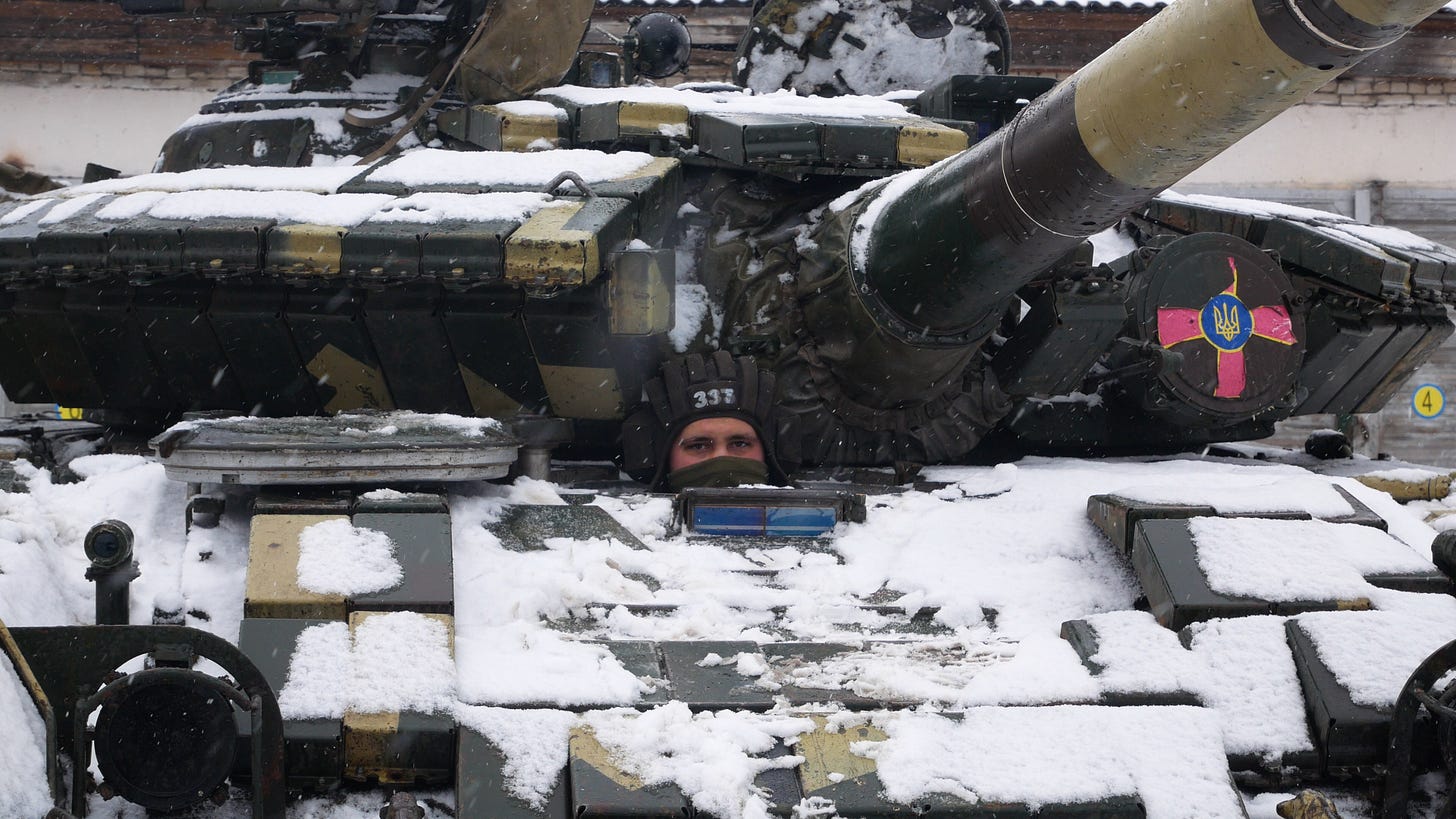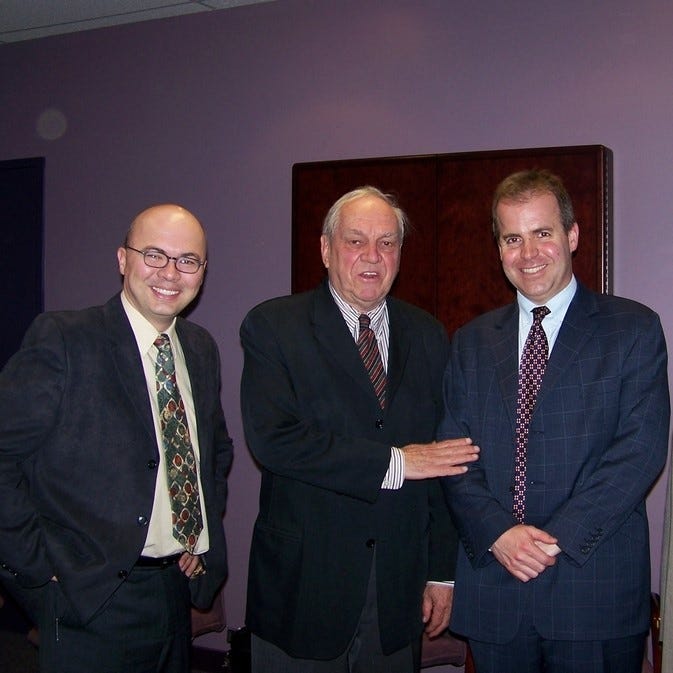Did Ukraine miss its big chance?
On the front lines, troops grow weary of war and corruption
Good morning - Here is your Saturday newsletter.
In peace,
Steve

The failure of Ukraine’s counter-offensive last year has begun to hit home.
Raising money and weapons is becoming more difficult as the world’s attention has shifted away from Eastern Europe to the Middle East.
For even Ukraine’s most ardent supporters, a feeling of gloom is setting in.
The front lines of the conflict are literally frozen with both sides dug-in for the winter. Hurling missiles, drones and artillery shells at each other, the third year since Russian President Vladimir Putin’s devastating invasion arrives next month.
Some analysts have described the war as a “stalemate,” over the objections of pro-Ukraine supporters who argue the term suggests unfairly that no further progress is possible.
That’s why it is surprising to hear one of Europe’s most pro-Ukraine and anti-Putin podcasts share a recounting of voices from the Ukrainian front lines that are frustrated and losing faith in the war’s leadership in Kyiv.
Warning: A difficult listen
The host of the “Ukraine: the lastest” podcast actually warned listeners that what they were about to hear was, “a difficult listen but, we think, an important one.”
The UK’s The Telegraph Senior Foreign Correspondent Roland Oliphant, who has been travelling in Ukraine, described to listeners the sense of resignation to the fading prospect of victory, anger at corrupt elites who are profiting from the war, and sadness over the faltering unity that brought the nation together at the invasion’s outset.
“There’s no way you can paint that huge battle which was the big battle of last year as anything other than a Ukrainian defeat, and a quite serious one,” he said, referring to Ukraine’s attempt to wrest control of its eastern territory from Russian forces.
To illustrate his point, Oliphant read a message from a Ukrainian soldier near Kharkiv who had been on duty for almost two years.
“We are suffering from our government. There’s not much respect, there’s no money, no vacations if you’re in the army, bad healthcare, you need to force it out of the government and that’s as a soldier. As a citizen it may be even worse because now, we’ve got citizens mobilized.”
This guy is a volunteer and he’s going to carry on fighting, said Oliphant admiringly.
“You’re now finding yourself alongside people who don’t really want to be there. They don’t want to be there because they don’t know what will be with them and their families if they get injured, there’s very little trust in the-powers-that-be in the government, the Ministry of Defence, to come look after you if something goes wrong.”
“From the first day all Ukrainians were together to defend country with the government, and now it’s like we’re separated. We have people with money, with power, who are dealing with their own problems, and we have poor people who need to fight for this government. I can see no justice. Many in the army feel like me, maybe most in the army feel like me because we see this corruption and it’s stupid.”
Oliphant is quick to admit that this may just be one disgruntled soldier. “But that kind of sentiment has been expressed to me by I mean multiple people over the past few days, and not just soldiers,” he added.
Not enough to win, just enough not to lose
Others disagree with this bleak assessment, of course. Eugene Czolij, former president of the Ukrainian World Congress, wrote, “the West has provided Ukraine with enough aid not to lose Russia’s unprovoked all-out war against Ukraine, but not enough to win it.”
The podcast’s producers followed up with an episode whose titled pointed out, “This is Ukraine's darkest hour. But it's always darkest before dawn, and why 2024 is the year the West must step up.”
Ukrainian President Volodymyr Zelenskyy took his case for more support for his country’s fight against Russian invaders to global leaders and financiers meeting in Davos, Switzerland this week.
President Zelenskyy found an ally in European Commission chief Ursula von der Leyen. "Ukraine can prevail in this war but we must continue to empower their resistance," she told business leaders at the World Economic Forum, urging Kyiv's western allies to continue their arms deliveries and financial support of Ukraine.
If you found this article interesting, please like or share with others, and paid subscribers can leave a comment below.
Ed Broadbent: 1936 - 2024

Special offer for paid subscriptions ending soon
PeaceQuest is a reader-supported publication. Like me, you might support peace education, too.
As a bonus until the end of January, support peace education and subscribe at $5.50/month and claim your free copy of Naomi Klein's "Doppelganger: A Trip into the Mirror World" (hardcover, a $38 value).
I’m overwhelmed that 28 generous readers have become paid subscriber this month, and free copies of Naomi Klein’s new book have already landed on their doorsteps.
Thanks for my copy of Klein's book. It's a great read and a concrete way for me to deepen my appreciation of the context in which we're trying to build peace. Keep using the PeaceQuest website and network to build solidarity and engagement and to offer resources we can use. The Children and War resource is very rich.”
Michael Cooke
Update on last week’s story
Last week I wrote an article that asked, “Is Canada secretly at war in the Middle East?” Others have taken up the question, too.
Canadian Dimension’s Nick Gottlieb says, “Canada’s involvement in this campaign is both reckless and unjustifiable.”
Hamilton Coalition to Stop the War’s Ken Stone wrote in the Hamilton Spectator, “Our government’s knee-jerk support for unilateral U.S. warmongering, and its failure to support South Africa’s application to the International Court of Justice, invoking the UN’s Genocide Convention against Israel, makes Canada more and more isolated in the world community.”



